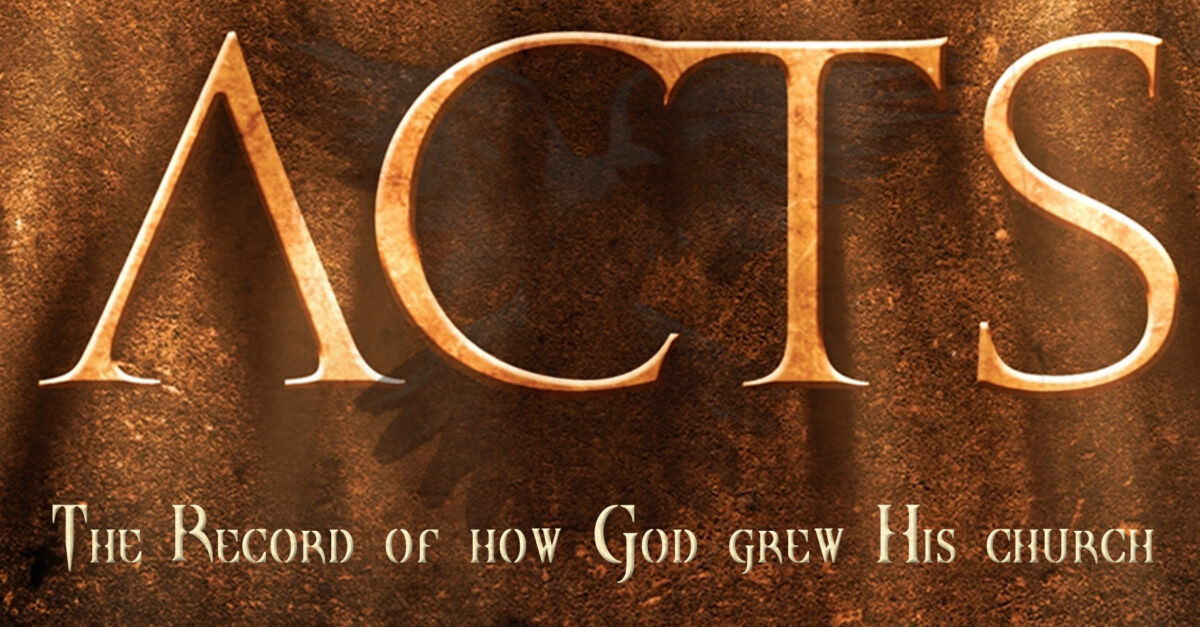26 “Fellow children of Abraham and you God-fearing Gentiles, it is to us that this message of salvation has been sent. 27 The people of Jerusalem and their rulers did not recognize Jesus, yet in condemning him they fulfilled the words of the prophets that are read every Sabbath. 28 Though they found no proper ground for a death sentence, they asked Pilate to have him executed. 29 When they had carried out all that was written about him, they took him down from the cross and laid him in a tomb. 30 But God raised him from the dead, 31 and for many days he was seen by those who had traveled with him from Galilee to Jerusalem. They are now his witnesses to our people.
32 “We tell you the good news: What God promised our ancestors 33 he has fulfilled for us, their children, by raising up Jesus. As it is written in the second Psalm:
“‘You are my son;
today I have become your father.’[a]
34 God raised him from the dead so that he will never be subject to decay. As God has said,
“‘I will give you the holy and sure blessings promised to David.’[b]
35 So it is also stated elsewhere:
“‘You will not let your holy one see decay.’[c]
36 “Now when David had served God’s purpose in his own generation, he fell asleep; he was buried with his ancestors and his body decayed. 37 But the one whom God raised from the dead did not see decay.
38 “Therefore, my friends, I want you to know that through Jesus the forgiveness of sins is proclaimed to you. 39 Through him everyone who believes is set free from every sin, a justification you were not able to obtain under the law of Moses. 40 Take care that what the prophets have said does not happen to you:
41 “‘Look, you scoffers,
wonder and perish,
for I am going to do something in your days
that you would never believe,
even if someone told you.’[d]”
Verse 26 The second part of Paul’s speech is all about Jesus. It is similar to Peter’s speeches in Acts chapters 2 and 4. But Paul was not talking to Jews only. He said, ‘this message about salvation is for us all’. That meant the ‘sons of Abraham’ (the Jews) and the Gentiles.
Verse 27 Like Peter, Paul blamed the Jews for Jesus’ death. Paul said that they did not know what they were doing. This, too, was like what Peter said. (Look also at Acts 3:17.) The most important fact was that the prophecies about Jesus became true. The Jewish leaders and teachers knew the scriptures very well. But they did not understand the real meaning.
Verses 28-29 Paul described Jesus’ death. He also said that people put Jesus’ body in a grave. He wanted his audience to know that Jesus had really died. So, then they would know that his resurrection was real. They would know that something really surprising and wonderful had happened.
Verses 30-31 Paul showed how people had condemned Jesus. But God had proved that they were wrong. The resurrection was a real miracle. Jesus appeared in front of his disciples after God had raised him from death. Jesus did this for 40 days (Acts 1:3).
Verses 32-33 Paul used words from the scriptures. In this way, he showed what God had done. Paul said that God had ‘raised Jesus up’ (verse 33). This meant that God had given Jesus to be his Messiah. Paul said words from Psalm 2:7. This is a psalm about the king that God chooses. It reminds us of God’s promise to David. Someone from among David’s family would be the Savior.
Verses 34-37 David died and his body went bad. But Jesus died and his body did not go bad. This was because God raised him from death. Paul spoke those words from Psalm 16:10. Peter had also spoken to them in Acts 2:27. But Paul linked them with Isaiah 55:3, where we read about God’s blessings. God’s blessings are certain because Jesus is alive! His resurrection means that God’s kingdom is here.
Verses 38-39 Again, Paul called his audience ‘brothers’. He means that they are Jews like himself. Now he gave to them the main part of his message. Jesus forgives sins! Sin is like a prison. There is only one way out of that prison. Jesus is the way. People can try to do the right things. They can obey the Law. But that will not make them free. Paul said that ‘people can believe in Jesus and they can trust in him. Everyone who does those things is free.’
Verses 40-41 Paul had spoken about those people who believe. Then he warned those who would not believe. He used words that the prophet Habakkuk had written (Habakkuk 1:5). Habakkuk said that God was doing something special at the time when he lived. But he said that the people did not recognise what God was doing then. At the time when Paul lived, the Jews were in a similar situation. They, too, needed to recognise what God was doing. God controls what happens to people at different times.
